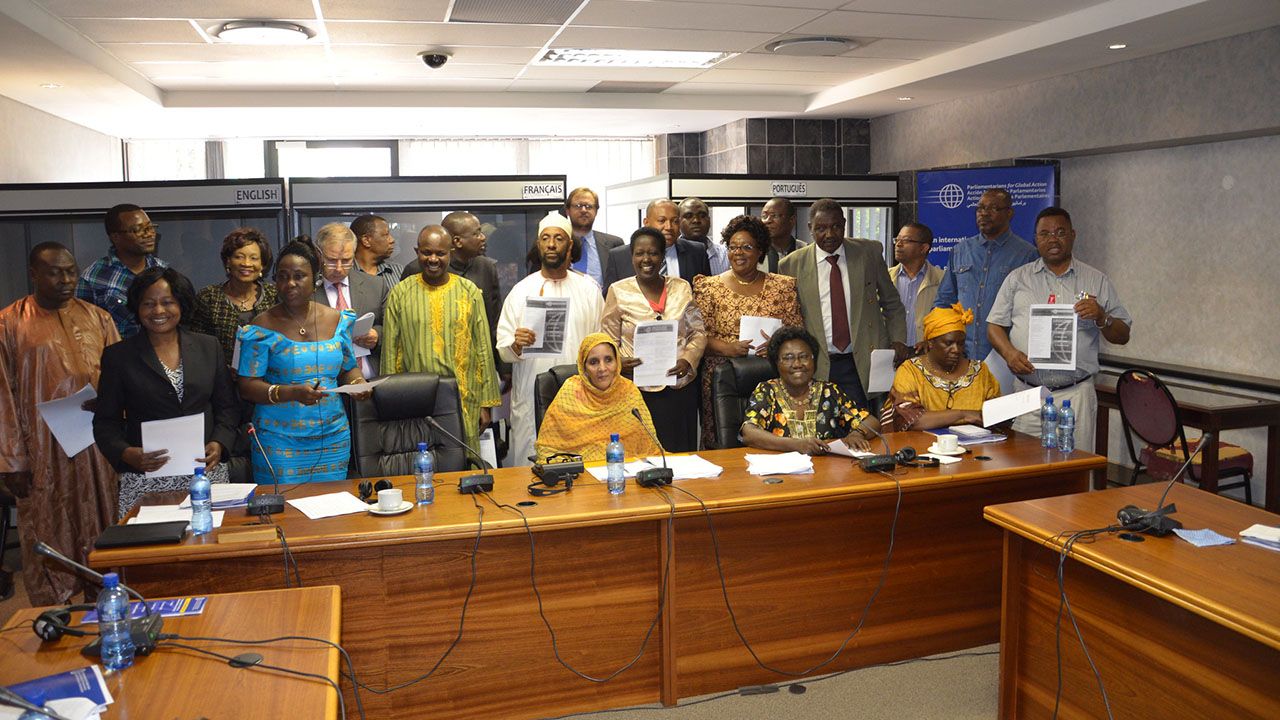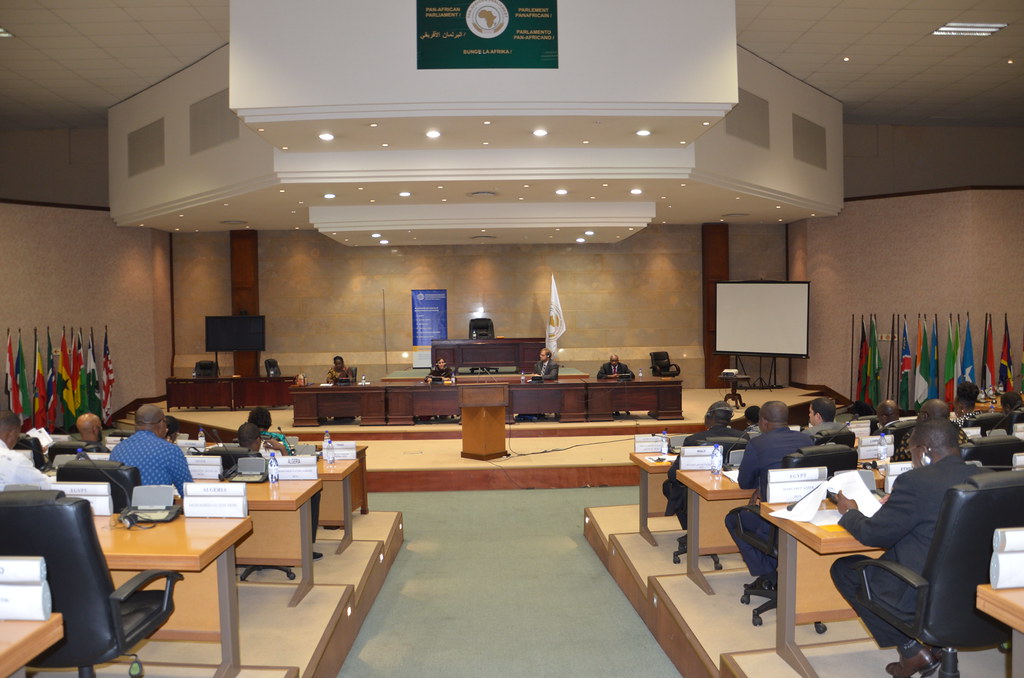
Pan-African Parliament, Midrand, South Africa / 17-18 October 2013
Overview of Purpose, Goals and Outcomes of Joint Committee Session
With the kind support of the Pan-African Parliament and the Federal Foreign Ministry of Germany, and together with Members of the Committees on Cooperation, International Relation and Conflict Resolutions and Committee on Trade and the Bureaus of Committee on Transport and Industry and Committee on Justice and Human Rights of the Pan-African Parliament, PGA held a Joint Session on the Arms Trade Treaty in the Pan-African Parliament from 17-18, October, 2013.
Also in attendance and active participants among the many MPs present during the several ‘Interactive Dialogue’ segments were 9 PGA Members of Parliament from Africa, PGA Director of Projects (Director of PGA’s ATT Program) and the Deputy Director of UNREC (Togo).
Background
The Arms Trade Treaty
On 2 April 2013, the General Assembly adopted the landmark Arms Trade Treaty (ATT), regulating the international trade in conventional arms, from small arms to battle tanks, combat aircraft and warships. The treaty will foster peace and security by putting a stop to destabilizing arms flows to conflict regions. It will prevent human rights abusers and violators of the law of war from being supplied with arms. And it will help keep warlords, pirates, and gangs from acquiring these deadly tools.
On 3 June, 2013 the ATT was opened for signature at UN Headquarters in New York.
To date, 114 UN Member States have signed and 7 UN Member States have ratified the ATT.
The Arms Trade Treaty and Africa
The inadequate regulation of the international arms trade has had devastating consequences across the continent of Africa over the past 50 years. Hundreds of thousands of lives have been lost, more have been seriously injured and tens of thousands of women have been raped in conflict situations.
In recognition of this reality, many African nations played a substantive role in the negotiation of the Arms Trade Treaty between 2006 and 2013.
Kenya was one of the original 7 co-sponsors of the UN General Assembly Resolution on the Arms Trade Treaty in 2006.
Between September 24-September 28, 2013, Angola, Cape Verde, Chad, Comoros, Republic of Congo (Brazzaville), Gabon, Ghana, Guinea Bissau, Lesotho, Madagascar, Lesotho, Sierra Leone, South Africa and Zambia signed the ATT.
From June 3 – September 23, 2013 the following African nations also signed the ATT.
Burkina Faso, Burundi, Cote d’Ivoire, Djibouti, Guinea, Mozambique, Rwanda, Nigeria, Senegal, Tanzania, Swaziland, Togo, Seychelles and Liberia.
Nigeria has ratified the ATT.
The Arms Trade Treaty and Parliamentarians
Parliamentarians have a fundamental role to play in promoting the Arms Trade Treaty
-
Advocating for the establishment of the ATT
-
Advocating for signature of the ATT
-
Advocating for ratification of the ATT
-
Advocating for and ensuring adequate implementation and enforcement of the ATT
-
Drafting legislation/regulations to give effect to the ATT
Purpose and Outcomes of The Joint Committee Session of PAP and PGA on the ATT
The purpose and outcomes of this Joint Committee Session of the Pan-African Parliament on the ATT were the following:
-
To familiarize the Members of the respective Committees with the Arms Trade Treaty and its goals
-
To heighten understanding of the key role that MPs can play in making the ATT a robust reality
-
To introduce and distribute the PGA Global Parliamentary Handbook on Ratification and Implementation on the ATT in 4 languages
-
To introduce the PGA Parliamentary Toolkit on the ATT
-
To identify concrete steps/initiatives that can be taken by MPs to facilitate early ratification and implementation of the ATT
-
To launch the Pan-African Parliament/PGA Group as a vehicle to facilitate future and follow-up work by Members of both PAP and PGA to accelerate the process of ratification, implementation and entry into force of the ATT
-
To adopt a Communique which will act as a blueprint/roadmap for follow-up initiatives by Participants in the Joint Committee Session


